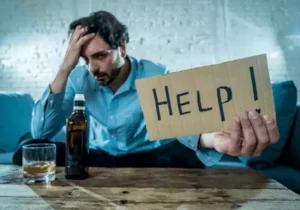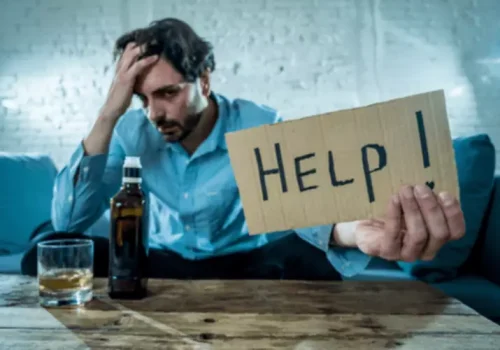Без рубрики
Should You Return to Rehab After Relapse?

Because of situations like the one mentioned above, going to rehab again is extremely important if you relapse. Relapsing means you either missed something you needed during treatment or forgot how to maintain your sobriety. Going back to treatment can provide you a recap of recovery maintenance tools and techniques to re-learn how to maintain long-term sobriety. Rehab can also help you pinpoint what caused your relapse so you don’t make the same mistakes again.
Common Fears of Going to Rehab — and How to Overcome Them

Deepening your spirituality may also include extending a helping hand to others. Volunteer work offers a satisfying way to help others outside of your program and may support your personal mission or vision statement for your life. Working at a soup kitchen, volunteering at the local animal shelter, or helping teens and children may all be what makes your life worth living. If you’ve experienced a relapse and are ready to seek treatment, American Addiction Centers’ (AAC) admissions navigators can discuss your treatment options with you. Alcohol.org is a subsidiary of AAC, a nationwide provider of addiction treatment services.
- A relapse is sometimes referred to as a lapse, slip, or slip-up.
- After all, you’ll likely be a far better employee if you’re sober rather than struggling with substance misuse.
- Because of this, going back to rehab is not considered a failure.
- More treatment may be needed to continue correcting the changes that have been made to the brain’s normal operation.
Going Back to Rehab Does Not Mean You Failed
- As a result of feeling low, you may isolate, either physically or by not being present or connected with the recovery community.
- The idea is that after rehab, you’ll have something to enjoy once you’re back at home, and a place where you can make new friends.
- Leaving rehab marks the beginning of a lifelong journey towards recovery and getting back on your feet.
- Instead, proper nutrition will help you to feel energized, happy, and healthy, which are positive states for ensuring long-term recovery.
- However, if you are on the fence about going back to rehab, here are some reasons why you should reconsider.
- The road to recovery for alcohol or drug addiction doesn’t end when rehab is finished.
Because family plays a huge role in recovery, we offer treatment services that address enabling, past traumas and include family counseling and experiential therapies in our treatment options. JourneyPure Emerald Coast follows the medical model of addiction tailoring individualized, evidence-based treatment plans for each patient. One of the most important aspects of how to live after rehab involves your relationships. It’s critically important to completely eliminate your associations with previous friends who use or abuse drugs and alcohol. Continuing these relationships will only open you up to the risk of relapse and negative habits. By communicating your journey and aftercare plan to your loved ones, you’ll also be able to hold yourself accountable and keep the promise you’ve made to stay sober.
Why Do People Return to Rehab?

Get professional help from an online addiction and mental health counselor from BetterHelp. Relapsing during the early stages of recovery is common, and many people who do so are able to bounce back and regain control of their sobriety. However, relapsing can be dangerous — once you stop using and lose your tolerance, you’re more likely to experience negative side effects or overdose when you use again. Your new sober life includes rebuilding existing relationships and forming new ones to nurture your recovery. There will be bumps in the road, but remember, progress is going back to rehab more important than perfection.
- There are several additional factors to consider about treatment when deciding to go back.
- It’s important to have open communication with your family members about your transition back into daily life.
- It can help you have insight so you’ll know how to best cope when things feel like they’re too much to handle.
- If you care about someone addicted to drugs or alcohol, learn about addiction, co-occurring conditions, and the various treatment options available.
Treating Co-occurring Disorders for Sustainable Recovery

There’s a huge world out there for you to explore after returning home after rehab. No matter what, your drug rehab center is there to help you when the going gets tough. If you have questions, concerns, or simply need help finding your way, your friends there are waiting for you. Each feeds into the other into a downward spiral, or each letter of the acronym can be supportive and lift up the other. Get plenty of rest, and you will have more energy to socialize, so you won’t feel lonely. When you’re not lonely, https://ecosoberhouse.com/article/8-tips-on-ow-to-spend-holidays-sober/ you won’t be ‘hungry’ for companionship, and you’ll have more energy to deal effectively with anger.

Sleeping Pill Addiction: Risks & Withdrawal
- You may be unable to work, provide for your family, or study properly.
- Taking a bit of time to go over these details can ensure you’re not surprised by expenses nor left worrying about finances during treatment.
- You can also get started right now by filling out our to verify your insurance benefits.
- Regardless of how long someone’s been sober, a return to substance use is a relapse.
- However, the effects become less powerful when you start abusing drugs more consistently and frequently.
If you suffer from a substance use disorder, you know that attending professional treatment is the best way to learn how to maintain long-term recovery. However, you also probably know that relapse is a part of many people’s stories. Contact a treatment provider today to find available treatment centers. Having experienced a period of sobriety before, recovering addicts often leave their second stint in rehab more dedicated to their recovery and determined to sustain that for a lifetime. Going back to rehab after a relapse will give you your best chance at achieving a lasting recovery according to research.
Those Feelings Will Not Go Away Until You Deal With Them
Staying busy (but not overwhelmed) will help to keep your mind focused on productive activities and away from negative feelings. Too much free time can promote feelings of depression, anxiety and even start to induce cravings. Be cautious of getting too overconfident and letting these priorities slip as this is what often triggers a relapse.
